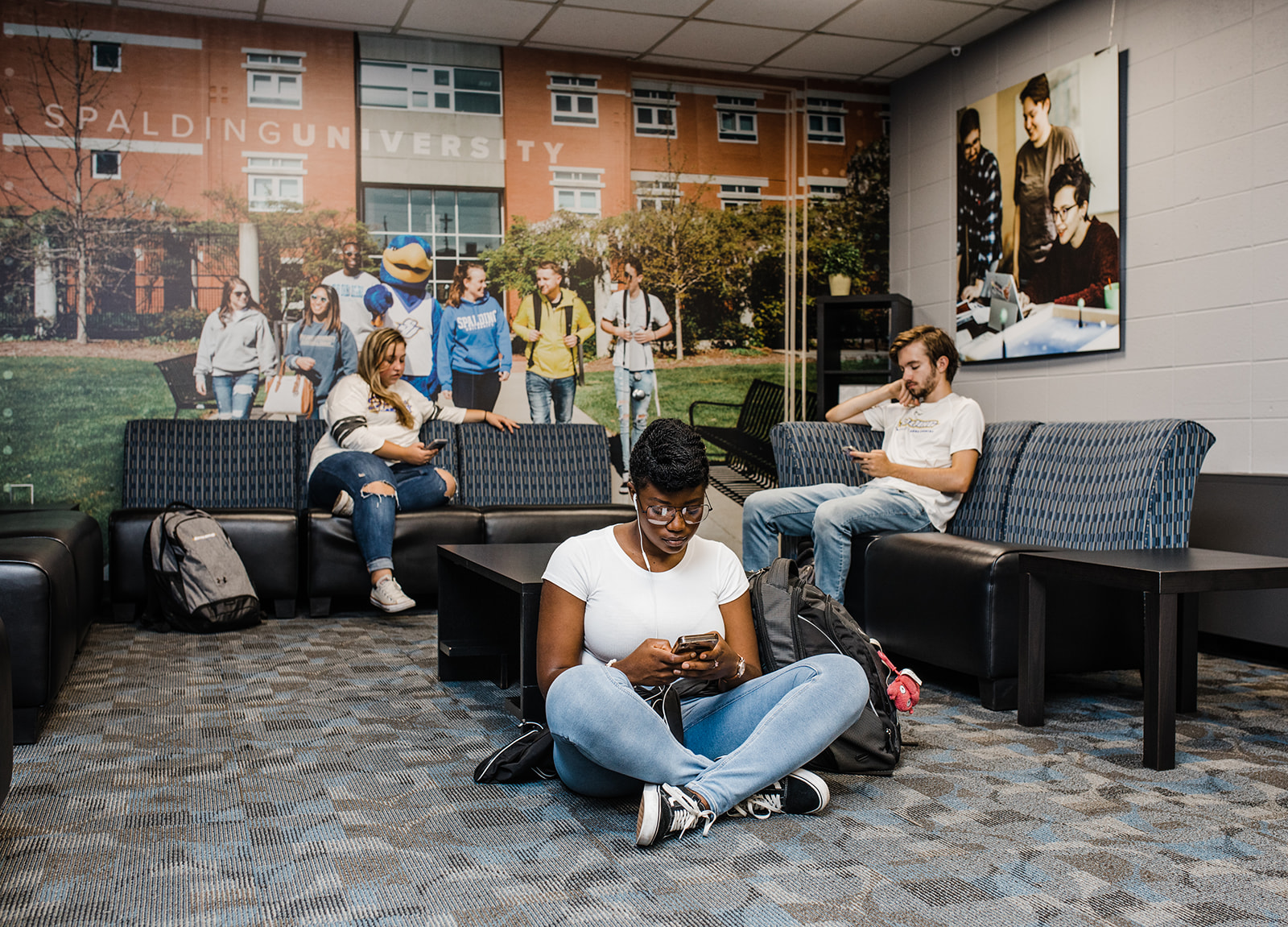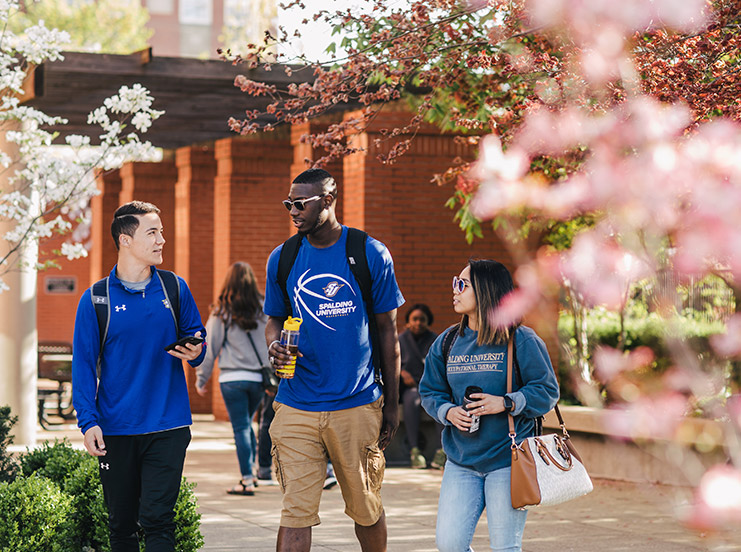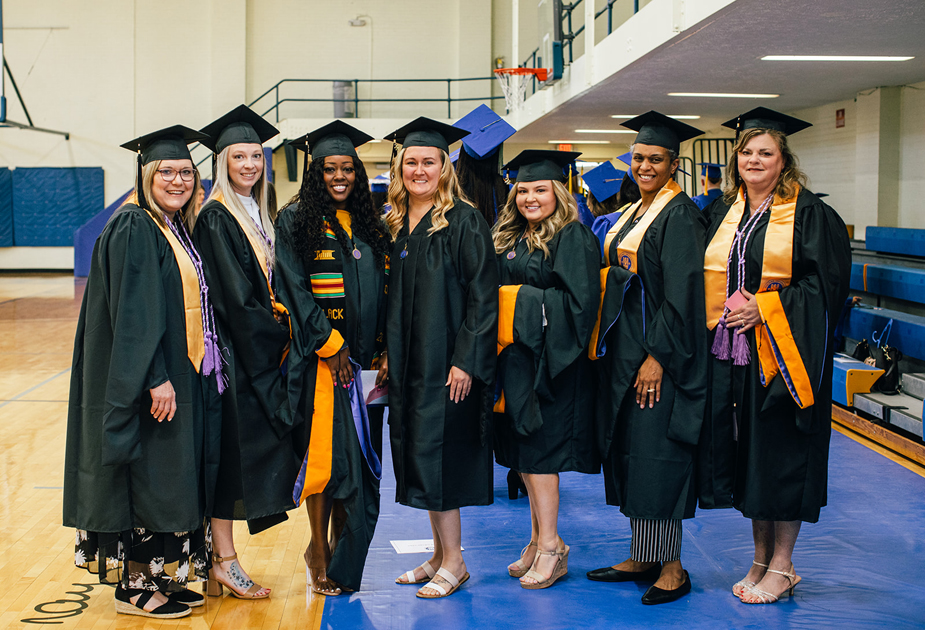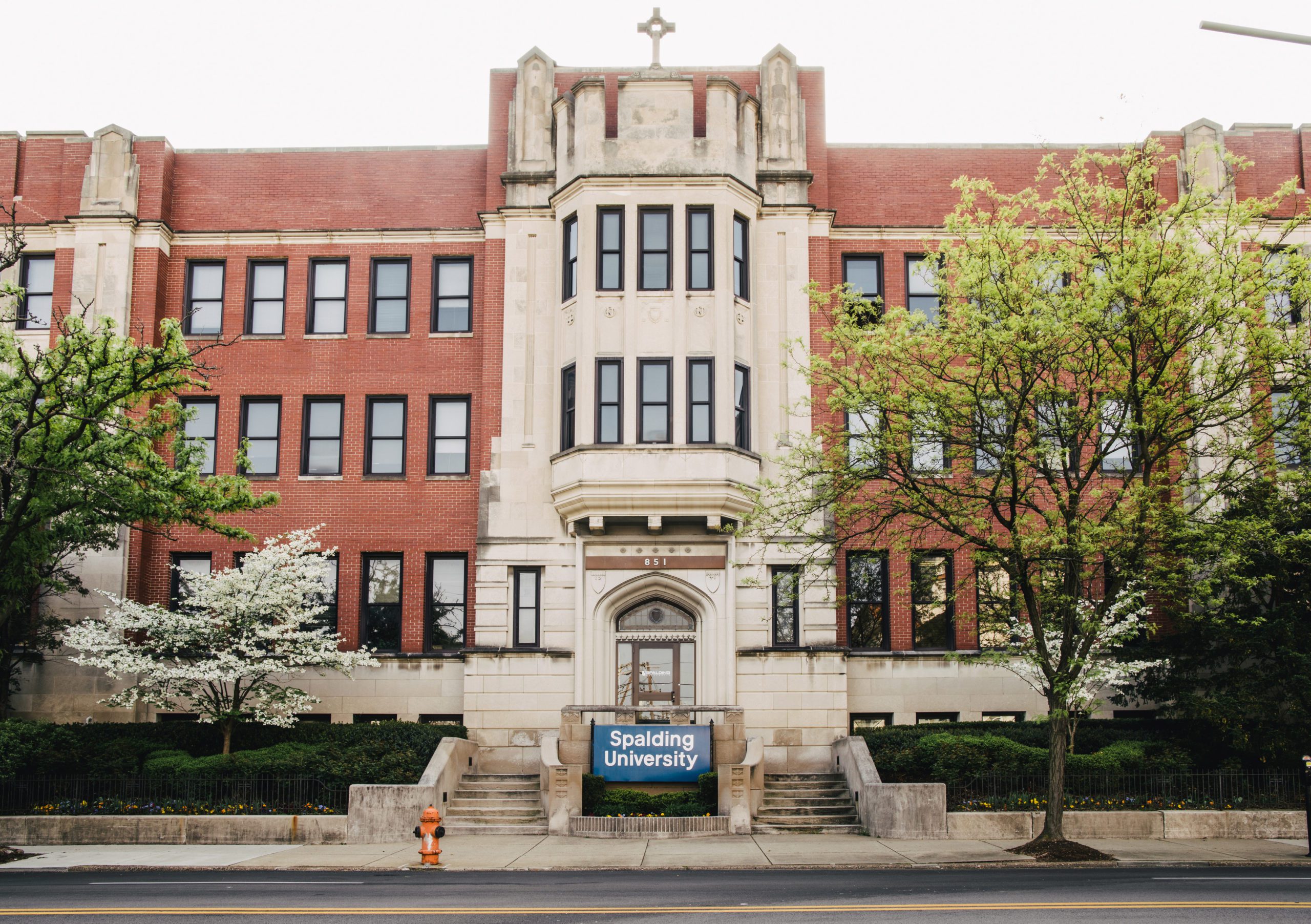Diversity, Equity & Inclusion
Diversity, Equity & Inclusion
As the first certified compassionate university in the world, Spalding makes inclusivity and equity a priority. We are building a strong, diverse community of learners, leaders and future professionals who will serve their communities with passion for their work and compassion for one another. Our efforts have not gone unnoticed, as Spalding has received special recognition from the Colleges of Distinction for equity and inclusion.
If you need any type of accommodation(s)–whether due to a learning or physical disability, a medical or mental health condition or a temporary impairment–or need help finding academic or accessibility resources, please visit our Center for Accessibility and Learning Equity page for more information.


of our Undergraduate and Graduate students are female
of our students identify as Black or African American, Native American, Asian, Hispanic/Latino, Pacific Islander and multi-race

of Spalding's full-time undergraduates are Pell Grant eligible


Spalding University is…
a diverse community of learners dedicated to meeting the needs of the times in the tradition of the Sisters of Charity of Nazareth through quality undergraduate and graduate liberal and professional studies, grounding in spiritual values, with emphasis on service and the promotion of peace and justice

Upcoming Events
Timeline
1920
Spalding (then known as Nazareth College) was founded by Mother Catherine Spalding and the Sisters of Charity of Nazareth. It was the first Catholic four-year women’s college in Kentucky in a time when women and Catholics in the area faced harassment and religious sectarianism. The Sisters remained true to their purpose “meet the needs of the times” despite objections and obstacles.
1921
Spalding developed a summer program to help teachers earn certificates; it took two summers to complete the program. This gave students the equivalent of normal school credentials.
1924
Spalding offered Saturday classes for teachers.
1920
Spalding offered the first nursing education outside a hospital in Kentucky. Two years later, Spalding has 100 nursing students registered for classes.
1946
Spalding was the first American college to offer a course in cancer treatment. This also marks the begin of Spalding’s transition to a coeducational institution as male students are admitted for an ethics course. A year later, coeducational evening classes are offered.
1950
Spalding was the first college in Louisville, KY to admit Black students. Prior to this, the Day Law of 1904 made it illegal for Black students to attend the same school as White students in Kentucky. This law was challenged in 1948, when Central High School teacher Lyman T. Johnson filed a federal suit against the University of Kentucky. This challenge was successful and the Day Law amended in 1950 before being completely nullified by the US Supreme Court’s Brown v. Board of Education of Topeka, KS decision four years later.
1965
Spalding had the largest summer school in Louisville with 1000 students taking summer classes.
2011
Spalding was named the first compassionate university.
2019
Recognizing that not all students have equal access to standardized tests and preparation opportunities, Spalding became the first non-profit university in Louisville, KY to adopt a test-optional undergraduate admissions policy.
2020
Spalding officially recognized Juneteenth as a university holiday.
2021
On Martin Luther King Jr. Day, Spalding’s School of Social Work, School of Professional Psychology and Center for Peace and Spiritual Renewal launched the Restorative Practices for the Anti-Racist Journey professional development and training program. This program is available to members of the public, and organizations and companies are encouraged to participate as part of their diversity training.
1920
Spalding (then known as Nazareth College) was founded by Mother Catherine Spalding and the Sisters of Charity of Nazareth. It was the first Catholic four-year women’s college in Kentucky in a time when women and Catholics in the area faced harassment and religious sectarianism. The Sisters remained true to their purpose “meet the needs of the times” despite objections and obstacles.
1921
Spalding developed a summer program to help teachers earn certificates; it took two summers to complete the program. This gave students the equivalent of normal school credentials.
1924
Spalding offered Saturday classes for teachers.
1933
Spalding offered the first nursing education outside a hospital in Kentucky. Two years later, Spalding has 100 nursing students registered for classes.
1946
Spalding was the first American college to offer a course in cancer treatment. This also marks the begin of Spalding’s transition to a coeducational institution as male students are admitted for an ethics course. A year later, coeducational evening classes are offered.
1950
Spalding was the first college in Louisville, KY to admit Black students. Prior to this, the Day Law of 1904 made it illegal for Black students to attend the same school as White students in Kentucky. This law was challenged in 1948, when Central High School teacher Lyman T. Johnson filed a federal suit against the University of Kentucky. This challenge was successful and the Day Law amended in 1950 before being completely nullified by the US Supreme Court’s Brown v. Board of Education of Topeka, KS decision four years later.
1965
Spalding had the largest summer school in Louisville with 1000 students taking summer classes.
2011
Spalding was named the first compassionate university.
2019
Recognizing that not all students have equal access to standardized tests and preparation opportunities, Spalding became the first non-profit university in Louisville, KY to adopt a test-optional undergraduate admissions policy.
2020
Spalding officially recognized Juneteenth as a university holiday.
2021
On Martin Luther King Jr. Day, Spalding’s School of Social Work, School of Professional Psychology and Center for Peace and Spiritual Renewal launched the Restorative Practices for the Anti-Racist Journey professional development and training program. This program is available to members of the public, and organizations and companies are encouraged to participate as part of their diversity training.